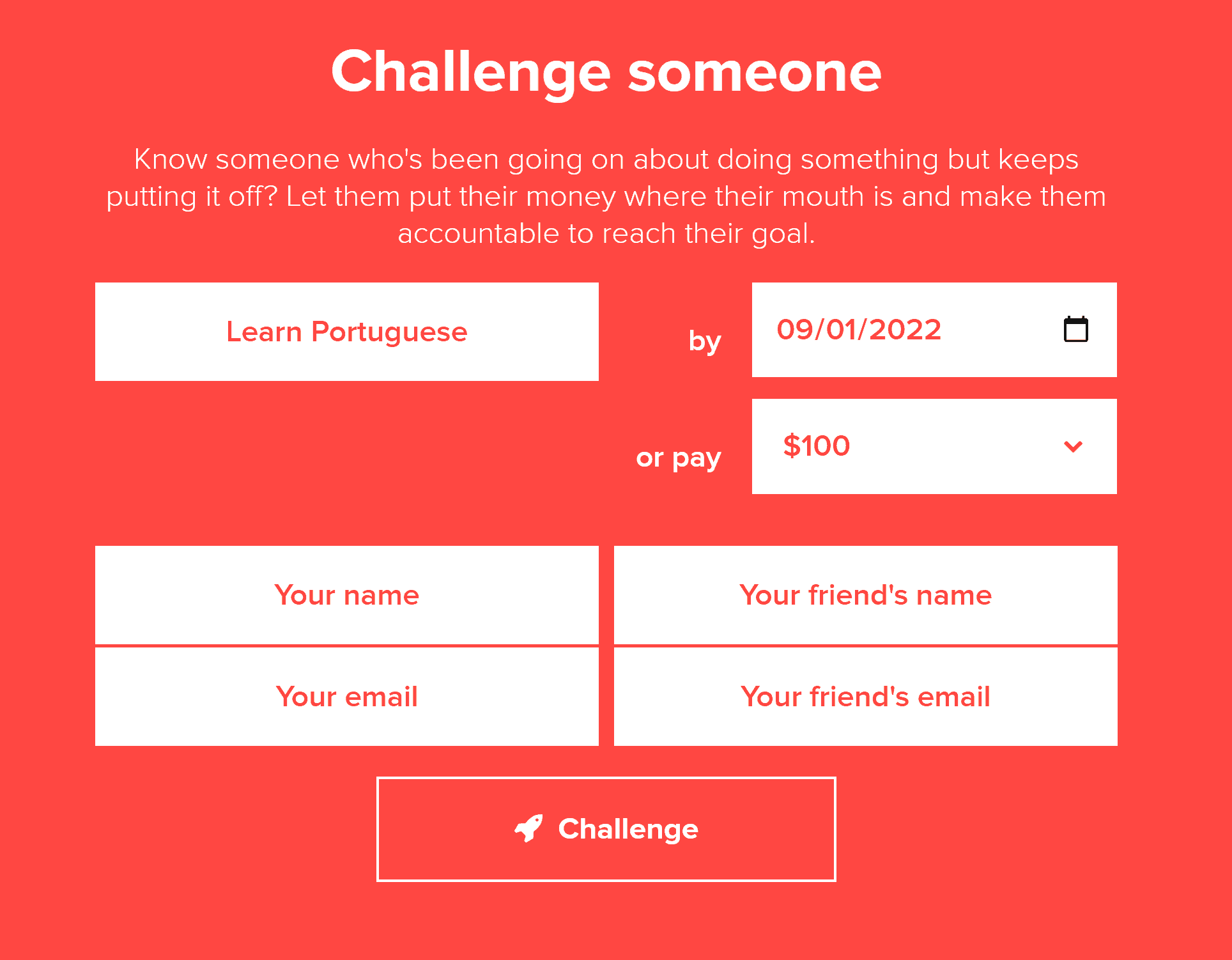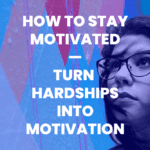Table of Contents
It’s a lot easier to get something done, and to get it done well, when someone else is watching.
I learned this the hard way, a few months after launching my freelance content business. When I started out, I was working entirely in an echo chamber. I had no colleagues, so my clients were the only people waiting for my work to be delivered.
It became very easy to push off deadlines so I could explore a new place, meet up with friends, or just scroll on my phone. But eventually, I began to fall behind. My business wasn’t growing at the pace I needed it to, and my stress was building as I became a master procrastinator.
Fortunately, that changed thanks to a chance meeting with someone who is now a close friend (for this article, I’ll refer to her as Meg). Though I didn’t know it when we met, Meg would become my accountability partner, and it would change the way I work for the better.
Accountability partner definition
An accountability partner is a peer who acts as a coach, a cheerleader, and a confidant to help you achieve something. As their partner, you will provide the same level of support.
Your accountability partner may help you go to the gym more often, advance your career, pick up a new skill, or achieve any other personal/professional goal.
An accountability partner is different than a mentor. Mentors are typically those who have experience and/or knowledge that surpasses your own—you’d go to them for guidance and advice. An accountability partner is a peer, someone on the same or similar level to you, who relies on you just as much as you rely on them.
What are the benefits of an accountability partner?
To understand the power of an accountability partner, you must first understand the difference between internal accountability vs. external accountability.
Internal accountability is when you are the only one holding yourself responsible for something. External accountability, on the other hand, is when someone other than yourself is holding you accountable.
For example, let’s say you make a goal to go on a thirty-minute walk every day. If you live alone, you can imagine how easy it will be to put off that walk when it’s raining outside or when Netflix asks if you’d like to watch another episode.
Now, let’s imagine you have a dog—a cute puppy that needs long walks every day to burn off energy (and go to the bathroom somewhere other than your carpet). In a way, the dog becomes your accountability partner—you are responsible to your pup, not just yourself, so taking that thirty-minute walk (even if it requires an umbrella) becomes much easier.
A human accountability partner works the same way. Perhaps you have set yourself a goal to learn pottery. On your own, you might go to the local pottery studio a few times a month. But if your best friend is also learning pottery and expects you to be there every Thursday at noon, you’ll feel obligated to meet them—and your pottery skills will grow stronger, faster.
This “law of accountability” can be applied to almost anything you want to achieve, professionally or personally. So how do you get an accountability partner?
I’ll share the story of how I met mine and then give you some advice on finding your own.
Related:
The story of my accountability partner
If you’re reading this article, perhaps you’re actively seeking an accountability partner. But when I found mine, I had never heard of the concept.
I met Meg about a year into my freelance journey when I was looking for ways to stave off the loneliness I felt working completely on my own. Though I didn’t miss commuting to the office or sitting through boring meetings, I was longing for the friendly relationships I had with some of my former colleagues.
This led me to join a Slack channel for freelance writers, where people could ask questions, share insights, or just chitchat. Occasionally we’d have group calls on Zoom, where we’d have a chance to speak face to face.
It was during one of these group calls when I met Meg, who at the time lived literally on the other side of the planet from me. I would never have met her if it weren’t for this group, but without her, my working life would not be where it is today.
We chatted a bit on the group call and then a little more on our private Slack channel. The conversation was easy, and soon we were comparing notes on what we were working on.
This eventually turned into one-on-one calls a few times a month, and as we got to know each other, we began to learn each other’s strengths and weaknesses, and what we both wanted to achieve with our careers.
Over the last few years, we’ve kept up our communication. Meg has given me so much valuable encouragement and advice, and I’ve done my best to provide the same for her. It’s been such a joy watching her grow and find her own path, and I know she’s enjoyed watching me do the same.
That’s how I met my accountability partner, but you don’t have to leave it up to chance. The first step to finding an accountability partner is knowing what to look for.
What to look for in an accountability partner
Some of the things you’ll look for in your accountability partner will depend on what it is you’re trying to achieve. But generally, there are a few important qualities to look for:
You share similar goals
You and your accountability partner are going to be working toward goals in tandem, and while your goals may not be exactly the same, they should at least be closely aligned.
For example, both Meg and I work as freelance writers—though I am focused more on SEO and strategy, while she concentrates on conversion copywriting and email marketing. Though our specific goals are different, we share big-picture goals: We want to become better writers, expand our client network, and work more efficiently. These unified goals made it much easier to work together as accountability partners.
You have different experiences and working styles
The best accountability partners share similar goals but come at them from different angles. For example, Meg is incredibly organized and enjoys doing lots of deep research before committing to anything. On the flip side, I make quick decisions and sometimes like to leap before I look.
Because we’re different in these important ways, Meg and I balance each other out. I can push her to put endless research to rest and make a decision, while she can help me pump the brakes and make more pragmatic decisions.
You’re both effective communicators and listeners
A strong accountability partnership should be a 50/50 exchange. Unlike a mentorship—where one person is there to provide guidance, and the other is there to take advice—with an accountability partner, you must be ready to share your own trials and wins while listening to and encouraging the other person when they share theirs.
I recommend checking out my article on passive listening vs. active listening before you start working with your accountability partner. Developing strong listening skills will make the relationship far more likely to succeed.
You’re both reliable and committed
For this experiment to work, you must both show up—literally and figuratively. If you or your accountability partner misses more than one meeting in a row or isn’t fully committed to helping the other person, you’ll hit a dead end.
Before starting up your accountability relationship, make sure your partner is available at the same times and frequencies you are, so you aren’t left high and dry.
How to find your accountability partner
Now that you know what to look for, how do you actually find someone who can be an accountability partner? Here are a few ideas:
Tap your existing network
You may already know your future accountability partner—you just haven’t started the accountability part of the relationship yet! Is there anyone you know currently, either in day-to-day life or through social media, who might fit the description of what you need in an accountability partner?
If you aren’t sure, try advertising what you’re looking for. The next time you’re hanging with friends, test the waters and ask if anyone would like to try working out together, practicing guitar together, etc. Post something on LinkedIn or Twitter, letting people know you’re in the market for an accountability partner, and see who bites.
Join a group of like-minded people
Take a page from my book and join a group of people who share similar goals as you. For example, you could sign up for a yoga class or attend a gettogether on MeetUp.com or a similar website. There are Facebook and LinkedIn groups for nearly any type of goal you can think of as well.
When joining these groups, don’t rush and select someone as your accountability partner right away. Get to know the group first, and feel out the different personalities you encounter. When you think you’ve found the right person, pitch the idea of an accountability relationship and see what they have to say in response.
Try the non-human route with an accountability app
If you’re looking to increase your productivity but struggling to find someone who can act as an accountability partner, fear not—technology can do a pretty decent job. Here are some accountability partner apps and websites to check out:
Go Fucking Do It
Is there any greater motivator than cold, hard cash? With this website, you can set a goal and a deadline, and agree to pay a friend (or frenemy?) a certain amount of money if you don’t keep your word. It’s pretty easy to use, and it may be all you need to hold yourself accountable to a goal.

StickK
If you still want a human element without taking on a “formal” accountability relationship, StickK may be for you. First, set a goal within the accountability partner app, then choose how you want to be motivated.
Like the option above, you can choose to put your own money on the line if that’s a good motivator for you. You can up the ante by opting to have your money donated to a cause you’re against if you fail to meet your goal. Knowing your cash will go to a political group you loathe will definitely light a fire under your feet.
If you prefer positive reinforcement, you can leave money out of it and instead share your progress with friends and family, who will be prompted to check in on you from time to time to see how you’re progressing.

Goals Wizard
Sometimes, the hardest part of achieving a goal is simply remembering what you need to do. Goals Wizard is designed to make it easier to stay on top of your to-do list and track your progress as you move toward your goal.
This tool—which does have a subscription fee—will give you a structured daily routine and provide you with concrete steps you can take toward achieving your goal. You’ll get daily reminders and can even sign up for additional coaching with a live expert (though this costs an additional fee).
If you have some money to invest toward achieving your goals, this accountability partner app could well be worth it.

There is little in life more satisfying than setting and achieving a challenging goal. But there is no reason you have to take on self-improvement alone—especially when having someone in your corner, cheering you on, will help you achieve your goals faster. I hope this article helps you find your accountability partner (or accountability AI), and that you find yourself reaching new heights together.




